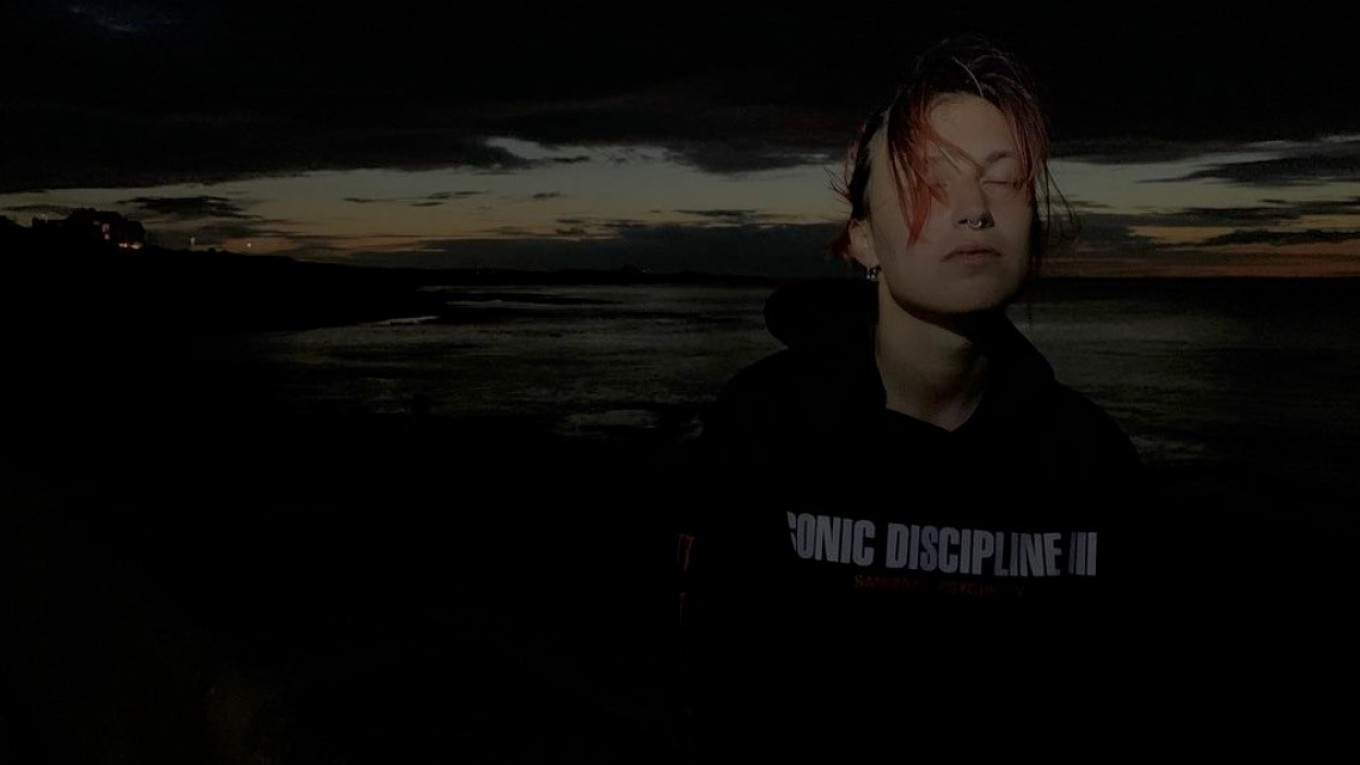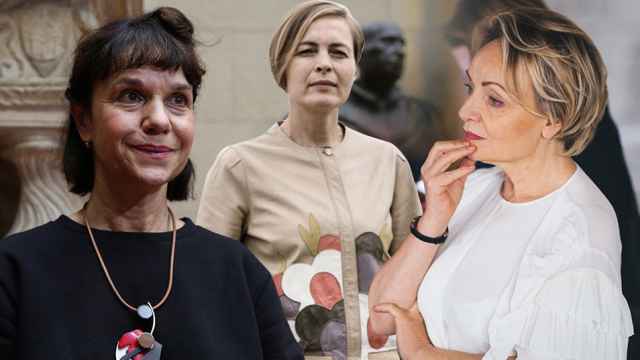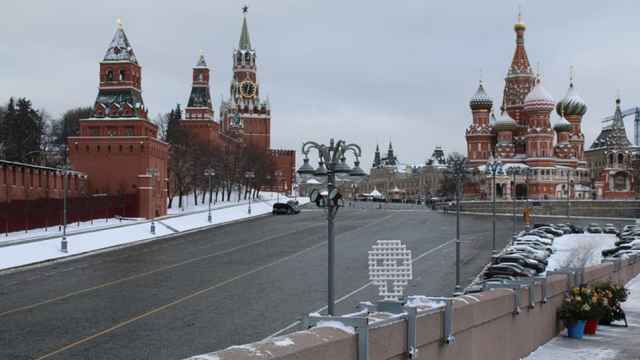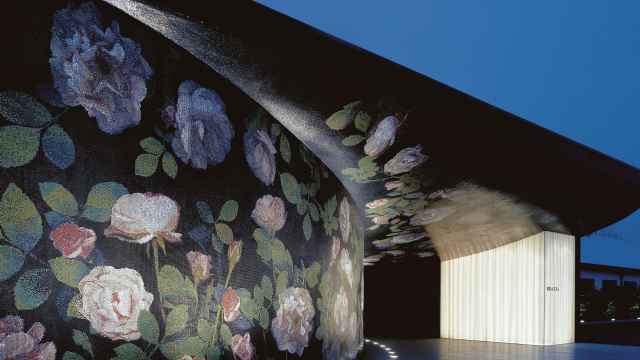Russia’s fashion and art scene has a new name — and an unexpected name it is: Emmie America, age 25, photographer and artist. She shot the April Russian Vogue cover — the youngest woman to do so in the history of the Russian version — and has a solo exhibition called “crazy is right now” at the Multimedia Arts Museum in Moscow.
Emmie is also an activist. Many people heard about her after her “Freedom” photo session on Feb. 5 when Emmie and 25 people dressed in police uniforms and surrounded the word “Freedom” written in the snow. Later, almost all of the participants including Emmie herself were detained and charged with a misdemeanor.
But she doesn’t call herself an activist, even though she has shot many photographs on social issues. For that April Vogue, she also wrote an essay about freedom, the right of people with an alternative point of view to their own voice, and the necessity for the state to hear protest.
However admirable social responsibility is, aren’t protests far removed from glossy photos and Vogue? Should they really be combined? But if they are, how does Emmie do it?
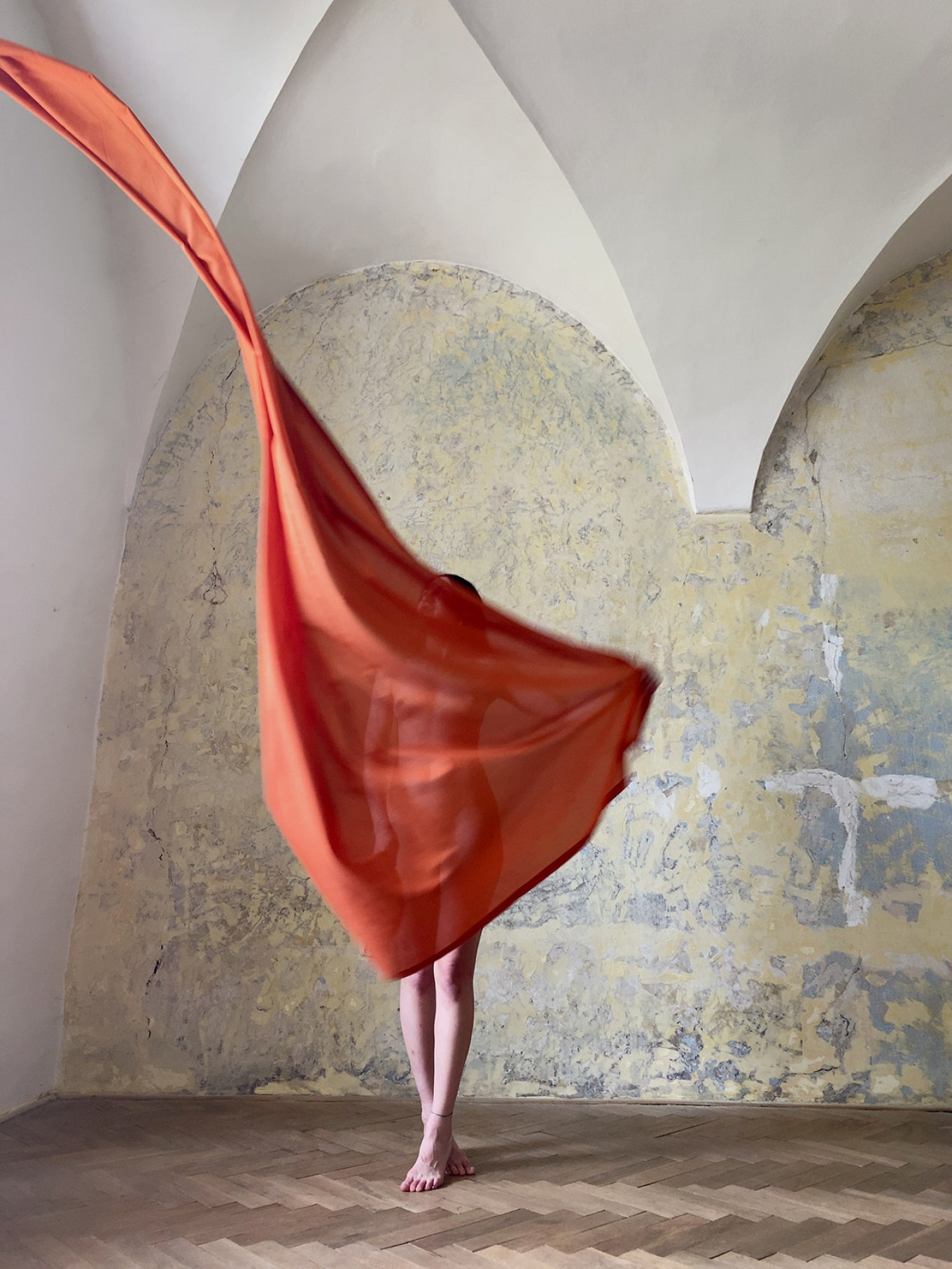
A winding straight path
Emmie America (she abandoned her birth name of Anastasia many years ago) was born in 1996 in Moscow. At the age of 10 she went to study in London, then Boston, and from there to New York where she became interested in political art and politics. She got very involved while working on a paper about political activism in Russia, whose heroes at the time included Pussy Riot and the Voina group.
She was also interested in art and fashion since childhood. She drew a lot (her mother painted and made ceramics) and thought she would “make clothes,” but in the end she realized that she didn’t really like working with her hands. But when her parents bought her a camera, she decided that she would “shoot everything.”
Emmie was still an undergraduate when she decided to dedicate herself to photography. She wasn’t inspired by someone’s work, but rather the theory of photography. At first, she just wanted to shoot fashion, but then she found a way to embody her inner worlds through fashion and do what really mattered to her.
She started her career with free internships in America after “applying for everything.” Gradually she developed knowledge and contacts. When she returned to Russia five years ago, began to do the same without friends and support. She started by sending her portfolio to Vogue. “It seemed to be the very top, and I thought, if they don't take me, I can always go down.” Vogue offered her the chance to shoot a story for the website, and after that she they hired her on an exclusive contract for a year.
And then her career took off. The glossy Numéro Russia, Italian Vogue, Russian and global brands offered jobs. “At first, when I read the emails,” Emmie said, “I just could not believe it. I woke up in the morning and thought I must have been dreaming.”
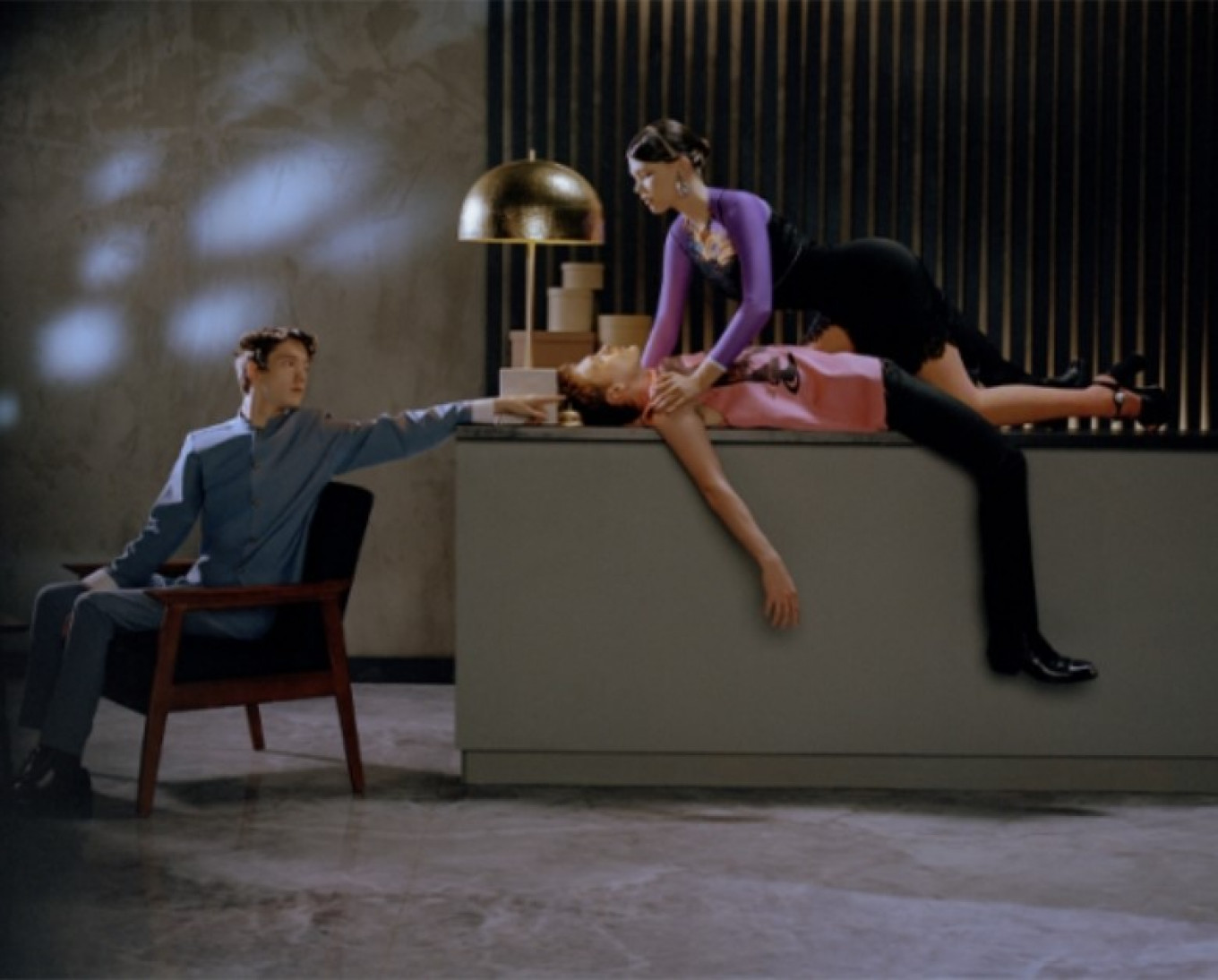
Her own path
Emmie's photos are bold and sometimes provocative. She is not afraid of taking on controversial social topics or making unexpected creative choices. For example, she shot non-professional models in support of the Russian artist and activist Yulia Tsvetkova, who is accused of distributing pornography. This work was published by Italian Vogue.
But still, not everyone is convinced the glossy press should be politicized and socially aware. Isn’t there is enough information on social problems in the media that covers it? Does anyone really want to read the same thing — only probably done less competently — in fashion magazines, too? For example, while the April issue of Vogue was well received by the public, some people called the magazine “a Saint Laurent advertisement against the backdrop of a paddy wagon.” It’s a fine line. On the one hand, it is important to speak about complex issues, while on the other hand, producing a glamorous protest while people are being brought up on serious criminal charges and other people are being labeled “foreign agents” might not seem like the right way to go.
Emmie agrees that glossies don't have to be political — but it's a question of context, and glossies have to remain relevant. And in 21st-century Russia, even the glossy press cannot be non-political.
As for reproaches that she glamorizes things, she has a clear answer: her conscience is clear, and these perceptions can’t hurt her.
“It’s an ad for Saint Laurent because it's Vogue. They have their own format, and they have to dress the model. Thanks to brands and magazines, I have the money and the opportunity to do my own projects, and without the money and brands I wouldn’t be able to. I am grateful for that. The Vogue cover is a huge resource, a huge audience, and thanks to the cover, I can tell people who are most likely not very interested in these issues: Look, this concerns you, too. Think about it. It’s very important to me.”
In any case, Emmie’s exhibition at MAMM is almost pure glam and far from social problems. But a solo exhibition is a responsibility and an important statement for any artist. Emmie says that she doesn’t think of it as a final statement, but as “an answer to friends and people I studied with who said that there is real art and there is commercial art.” This exhibition is a milestone.
Perhaps the milestone when Emmie’s voice is heard.
The exhibition “crazy is right now” will run until Aug. 29. For more information about the show and tickets, see the website.
A Message from The Moscow Times:
Dear readers,
We are facing unprecedented challenges. Russia's Prosecutor General's Office has designated The Moscow Times as an "undesirable" organization, criminalizing our work and putting our staff at risk of prosecution. This follows our earlier unjust labeling as a "foreign agent."
These actions are direct attempts to silence independent journalism in Russia. The authorities claim our work "discredits the decisions of the Russian leadership." We see things differently: we strive to provide accurate, unbiased reporting on Russia.
We, the journalists of The Moscow Times, refuse to be silenced. But to continue our work, we need your help.
Your support, no matter how small, makes a world of difference. If you can, please support us monthly starting from just $2. It's quick to set up, and every contribution makes a significant impact.
By supporting The Moscow Times, you're defending open, independent journalism in the face of repression. Thank you for standing with us.
Remind me later.



